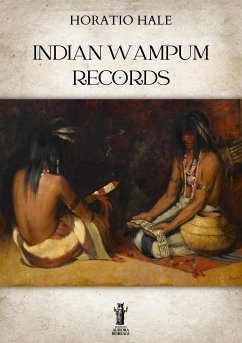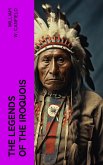Horatio Emmons Hale (1817-1896) was an American-Canadian ethnologist, philologist and businessman. He is known for his study of languages as a key for classifying ancient peoples and being able to trace their migrations. Hale made many valuable contributions to the science of Ethnology, attracting attention particularly by his theory of the origin of the diversities of human languages and dialects. When the United States Exploring Expedition was organized under Charles Wilkes, Hale was recommended, while yet an undergraduate, for the post of ethnologist and philologist. From 1838 to 1842, he worked with the expedition, visiting South America, Australasia, Polynesia, and North-western America, then known as Oregon Country. The Hale Passages of Puget Sound were named in recognition of his service to the expedition. The Hale's essay Indian Wampum Records, which we bring today to the attention of modern readers, was published in February 1887 in the magazine Popular Science Monthly. It is one of the most interesting anthropological and ethnological studies on the extraordinary modern and advanced aspects of the civilization of some native North American tribes.
Dieser Download kann aus rechtlichen Gründen nur mit Rechnungsadresse in A, B, BG, CY, CZ, D, DK, EW, E, FIN, F, GR, HR, H, IRL, I, LT, L, LR, M, NL, PL, P, R, S, SLO, SK ausgeliefert werden.









